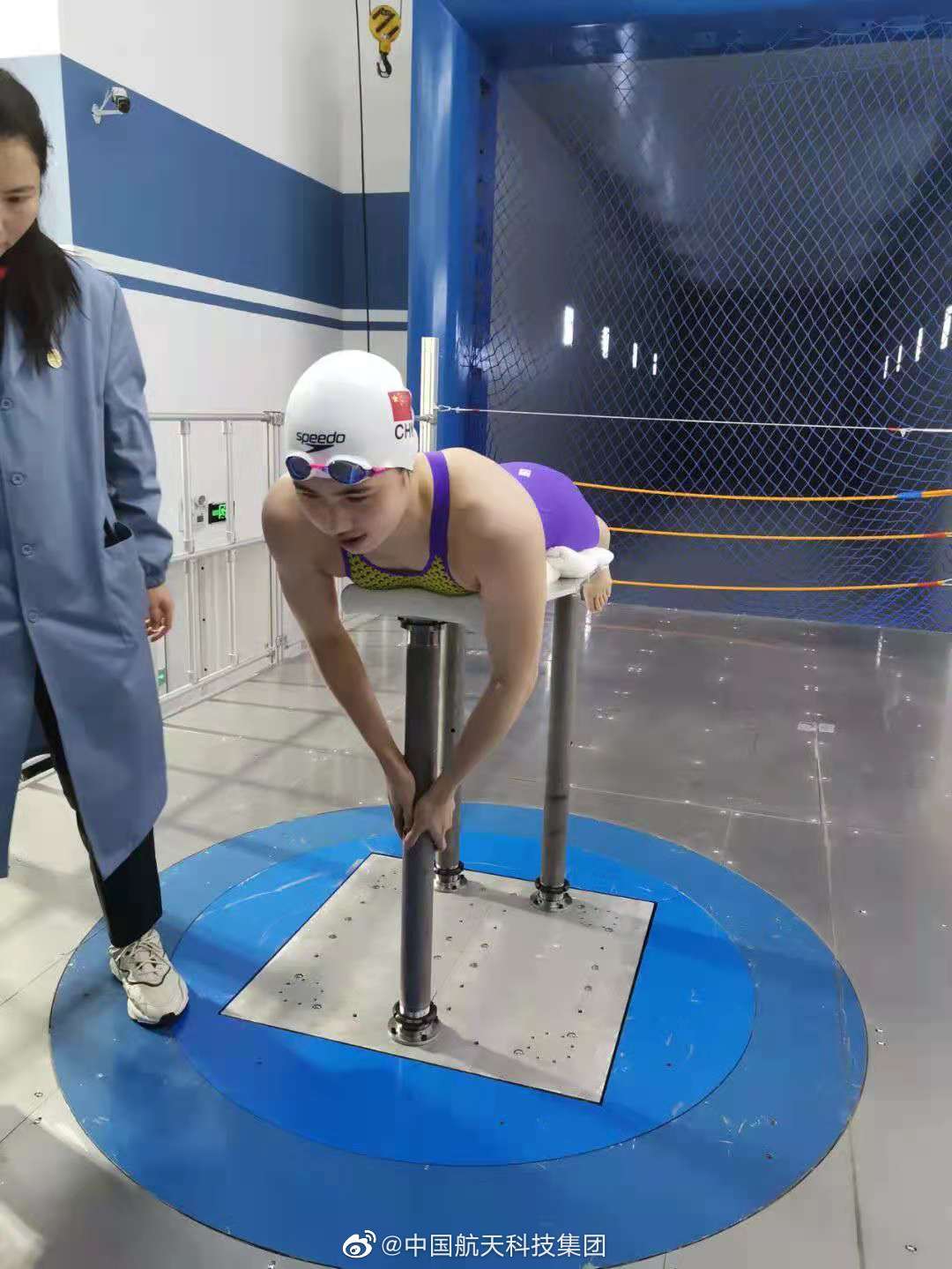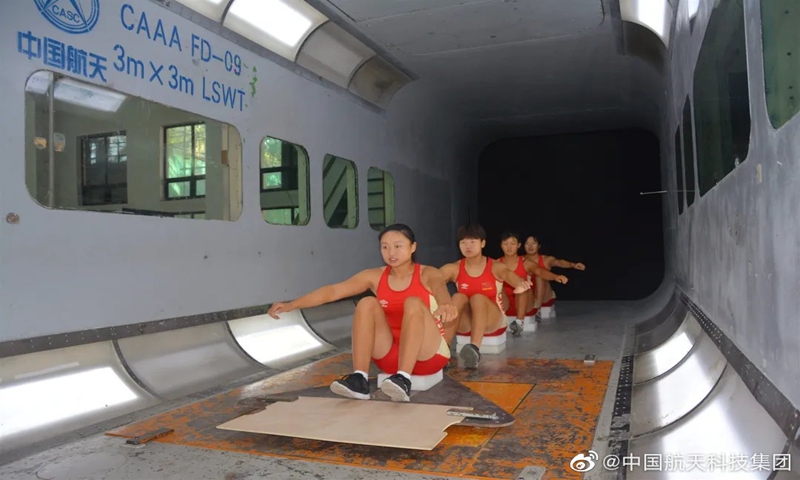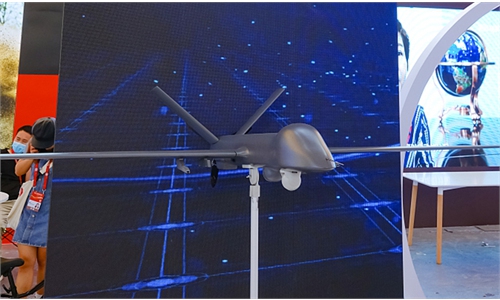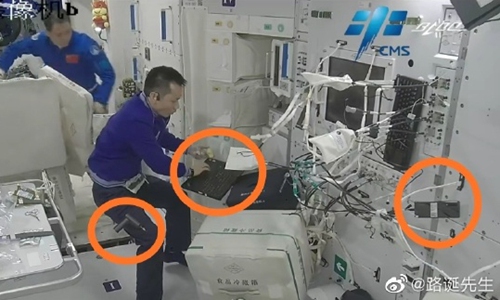
Gold medalist Zhang Yufei holds a Chinese national flag during the victory ceremony after winning the women's 200-meter butterfly swimming competition on Thursday in Tokyo. Photo: VCG
The swimming events of the Tokyo Olympic Games concluded on Sunday, with the Chinese swimming team collecting three gold medals, two silver medals and one bronze medal to finish fourth in the medal table in the pool. This record-setting performance sparked public interest on the "secret weapons" - aerospace technologies that backed the training of athletes.
During the preparation period of the Chinese swimming team for the Olympics, China Academy of Aerospace Electronics Technology (CAAET) carried out tests on six world swimming champions using aerospace measurement equipment and gained analysis data through simulation training, which helped make scientific training plans for athletes and provided scientific support for improving their performances, according to the Sina Weibo account of China Aerospace Science and Technology Corporation (CASC), the parent of CAAET.

China's swimming team train for the Tokyo Olympics with aerospace measurement equipment from subsidiary of the China Aerospace Science and Technology Corporation (CASC). Photo: Sina Weibo of CASC
The CAAET used the inertial navigation subsystem to capture technical parameters such as time, stroke frequency, stroke length and breathing frequency.
Apart from swimming, aerospace technologies have also been applied to training programs for other sports.
For instance, the laboratory under a CASC unit, which is equipped with low-speed wind tunnels, successfully developed a three-dimensional force measuring platform that can measure the aerodynamic drag of athletes during the rowing projects with different gestures and combination of players.

China's rowing team train for the Tokyo Olympics at the laboratory with low-speed wind tunnels under the China Aerospace Science and Technology Corporation (CASC). Photo: Sina Weibo of CASC
The Chinese rowing team was able to win a gold medal of women's quadruple sculls, breaking the world record for nearly 2 seconds and was 6 seconds off the silver medal winner on Wednesday. On the same day, China also won a bronze medal on men's double sculls, which was China's first medal in men's rowing.
"Aerospace technologies actually have been applied in Chinese people's daily life for nearly 50 years, including satellite applications, energy conservation and environmental protection equipment, advanced materials, and electronic information products," an aerospace industry insider, who declined to be named, told the Global Times on Sunday.
The insider said that well-known examples include the BeiDou Navigation Satellite System (BDS), which has been widely used across everyday life.
Drones, robots, intelligent driving, intelligent wearable devices and other cutting-edge products are changing people's way of production and life. Various intelligent application scenarios draw higher requirements for positioning accuracy, which are supported by the BDS and the mass-produced BeiDou high-precision positioning chip, independently developed by China.
At present, the BDS has launched high-precision services in more than 20 countries, with a total number of users of more than 2 billion worldwide, media reported.
With the completion of BDS-3, which was officially launched on July 31, 2020, the BDS products equipped with independent BeiDou positioning chips and location services have the ability to serve the world, with a daily visit of 2.5 billion.



